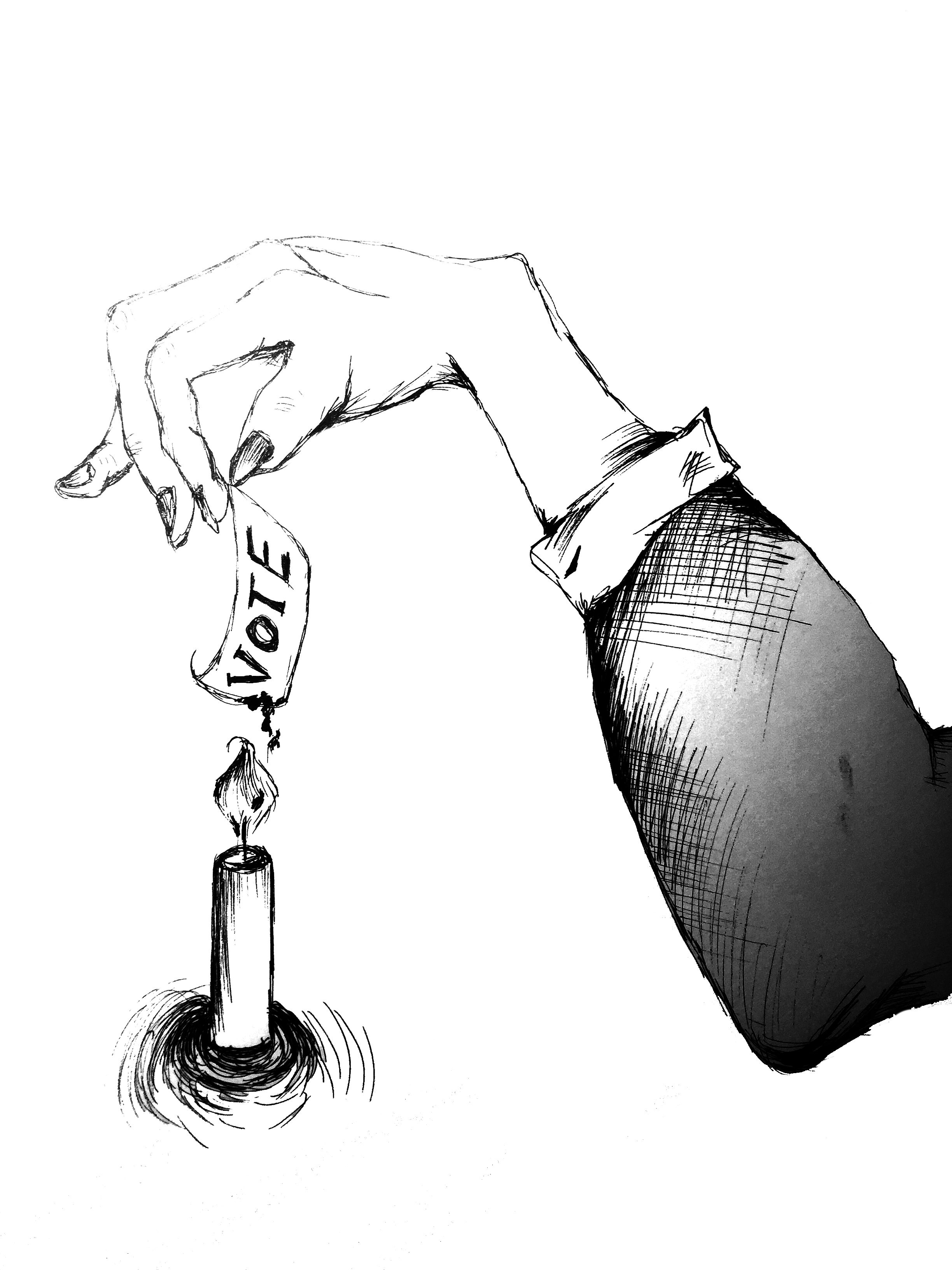
This past Tuesday, coincidentally Super Tuesday, I voted. Unlike many Americans, I did not cast my ballot to help determine our future president. No, instead I voted for local elections at the Wexler-Grant Community School in Dixwell, casting my ballot in Ward 22.
Upon walking into the school, I turned to a fellow Yale undergraduate and asked, curious to see if she knew: “What’s in Ward 22?”
“TD, Silliman, Morse, Stiles and Swing Space,” she answered confidently.
“That’s it?” I asked.
“Yeah, that’s it,” she replied confidently, handing her Yale ID to volunteers at the voter registration table and skipping off to cast her ballot.
But that’s not it — she had missed more than two-thirds of the actual district. So although yes, these Yale residences are in Ward 22, so is the entire wedge between Dixwell Avenue and Prospect Street.
I should have turned around and not cast my ballot.
Why? I drink New Haven water and I walk on New Haven sidewalks. I even buy my coffee at New Haven shops. By the time I graduate, I will have spent eight months a year in New Haven for four years. Voting is my civic right — some would say my civic duty. I am an adult American! I should participate in determining the course of my public sphere, my polis! Right?
Wrong. Although my Facebook profile says I live in New Haven, I rarely interact with New Haven proper, more gown than town. I should not have voted because I am not a resident of New Haven. It’s as simple as that. Even though I drink New Haven water, that water is iced and flavored with fruits and veggies in a dining hall. And even though I walk on New Haven sidewalks, my route takes me through Yale’s swipe-access gates. I am often not even New Haven enough to walk the four blocks down Chapel to the Happiness Lab (which, by the way, sells the best soy latte this side of the Mississippi). So although my Facebook says I live in this city, I’m an expat in New Haven — a tourist on an extended visa living blithely in my compound. And so it would be outlandish — insulting, frankly — to call myself a local.
But still, this past Tuesday I voted in local politics — because my friend, a fellow Yale undergraduate, was on the ballot.
Before continuing, I must offer a very important (and very genuine) disclaimer. My friend absolutely should have, and did, win. Aside from her intelligence, formidable character and work ethic, my friend had the firm endorsement and support of the Ward 22 alder. That’s the most important part. Since my friend’s new role will require her to support and represent the alder, they have to be a good team. And they won by enough of a landslide that they still would have won without a single Yale vote. They ran a good and honest campaign that will undoubtedly become a good and honest two-year term.
Yet I still should not have voted. And, I would argue, neither should have many of the other Elm City undergraduates who cast their ballot alongside mine. We have not earned it, unlike our Yale peers who are from here, who intend to stay here or who actually involve themselves consciously in New Haven civic life — protesting for the rights of locals or having actual non-Yale friends (or even doing something as simple as regularly reading the New Haven Independent). Other than that, no — we are not really residents of this city, and the decisions of the aldermen have a negligible effect on our lives.
I only voted because my friend was running. I even got a lift from her campaign to the polls (far from Yale but not far enough that I couldn’t have walked). My actions were negligent, dangerous to the public sphere — almost malignant. Voting should be an internal compulsion, not a favor. I should have left the outcome of this election to the people whose school districts, snow removal schedules and garbage collection will actually be affected.
If democracy is an extended conversation, then perhaps the most important part of being a citizen is knowing how and when to stay silent and listen. This understanding of yourself and your role in society — a struggle that starts now, when we are young — takes a lifetime. Staying silent when it is your turn to speak is dangerous to yourself and to others. But speaking when you should not, when it is not your turn, is also a civic mistake. And, in the New Haven Democratic conversation, it is very rarely the turn of Yale undergraduates like myself. Silence is deadly, but so is superfluous noise.
Amelia Jane Nierenberg is a sophomore in Timothy Dwight
College. Her column runs on
Thursdays. Contact her at amelia.nierenberg@yale.edu .







